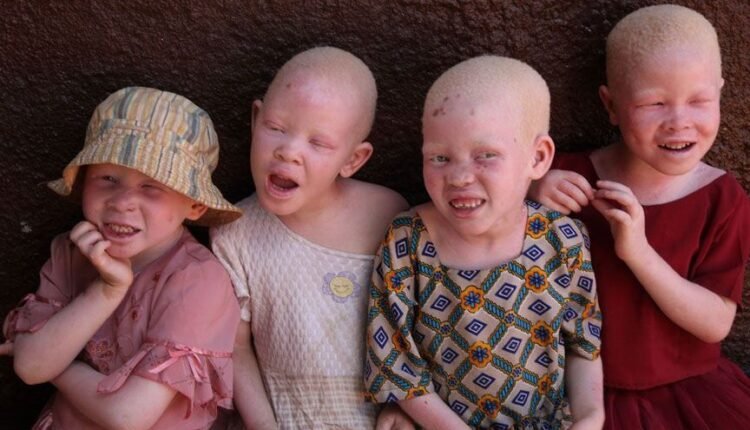Analysis: Nigerian Albinos and struggle against skin cancer
Analysis: Nigerian Albinos and struggle against skin cancer
An Analysis by Oluwafunke Ishola
In Nigeria, a silent struggle for survival unfolds daily for thousands living with albinism.
Their unique genetic makeup, which lacks melanin (pigmentation), leaves them acutely vulnerable to the scorching sun.
This vulnerability tragically results in skin cancer claiming no fewer than two lives every month, says Bisi Bamishe, National President of the Albinism Association of Nigeria/
Bamishe describes the community as being “under siege’’, with countless others battling for their lives in hospitals or languishing at home without adequate medical care or hope.
Bamishe deeply laments the severe lack of structured interventions.
She highlights the urgent need for free or subsidised skin cancer treatments, consistent distribution of preventive measures like high-SPF (20-30) broad-spectrum sunscreens, protective clothing, UV-protective sunglasses, and specialised annual dermatological and eye examinations.
The prohibitive costs associated with these essential measures place them far beyond the financial reach of most of Nigeria’s estimated two million persons with albinism (PWAs).
The Founder of Albino Foundation (TAF), Mr Jake Epelle, Founder, also affirms that persons with albinism in Nigeria always have to contend with some health challenges due to the genetic condition they have.
Albinism is a rare, non-contagious, genetically inherited condition present at birth.
It results in a lack of melanin in the hair, skin, and eyes, making individuals highly susceptible to sun and bright light.
Consequently, almost all people with albinism have visual challenges and prone to developing skin cancer.
While albinism affects approximately 1 in 20,000 individuals worldwide, Nigeria has one of the highest prevalence globally.
The country’s tropical climate, with its intense sunlight, places PWAs at heightened risk of skin cancer.
A UN study reveals that most people with albinism in Nigeria die from skin cancer before age 40.
Skin cancer, caused by DNA damage often from sun exposure, is treatable if caught early, but the lack of access to care is a significant barrier.
Nigeria has fewer than 125 dermatologists for a population exceeding 220 million, creating a dire ratio of roughly one dermatologist for every 1.1 million people.
These specialists are also concentrated in urban areas, further hindering access for PWAs in rural regions.
Beyond the severe health challenges, albinism in Nigeria also presents a unique set of social stigma and discrimination challenges.
These pervasive issues impact various aspects of their lives, including education, employment, and overall well-being.
There is an urgent call to action.
The International Albinism Awareness Day, observed annually on June 13, with the 2025 theme “Demanding our rights: Protect our skin, Preserve our lives,” underscores the urgent need for awareness, prevention, and accessible healthcare.
The theme calls on authorities to take steps to prevent skin cancer-related deaths, including skin cancer screening and the provision of sunscreen, and to add sunscreen to the World Health Organisation’s (WHO) Essential Medicines List.
Read Also: Democracy Day Speech: Economic gains not yet felt by Nigerians,…
According to the National Organisation for Albinism and Hypopigmentation, the failure to prevent these foreseeable yet preventable deaths among persons with albinism constitutes not only a violation of the right to health but also the right to life.
Stakeholders are advocating for improved education and awareness among PWAs and the public on early detection, preventive measures, and available treatment options.
They also push for integrating skin cancer treatment into the National Health Insurance Scheme.
For persons with albinism, the time for mere discussions has passed.
They demand tangible, swift, and decisive actions from governments, health authorities, and all stakeholders to combat this preventable loss of life.
The community’s survival hinges on urgent, comprehensive action. (NANFeatures)

